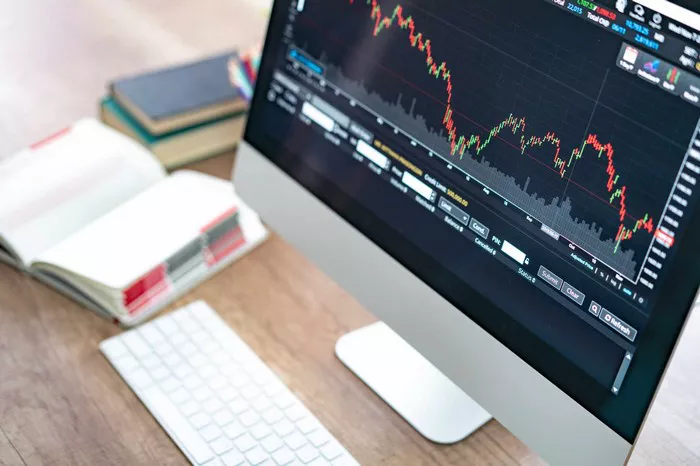In the fast-paced world of foreign exchange (Forex) trading, a forex broker plays a crucial role in enabling individuals and institutions to buy and sell currencies. Whether you’re an experienced trader or just starting your journey into the Forex market, understanding what a forex broker is and how they function is essential to navigating the complexities of currency trading. This article aims to explain what a forex broker is, the types of brokers available, how to choose a reliable one, and the services they offer.
Understanding Forex Trading
Forex trading involves buying one currency while simultaneously selling another. It is done in pairs, such as EUR/USD (Euro/US Dollar) or GBP/JPY (British Pound/Japanese Yen). The goal is to predict whether the value of one currency in a pair will rise or fall relative to the other. Traders speculate on these price movements to make a profit.
The foreign exchange market is the largest and most liquid financial market globally, with daily trading volume exceeding $6 trillion. Due to the scale of the market and its complexity, Forex trading is typically conducted through intermediaries known as Forex brokers. These brokers act as facilitators, connecting traders to the market and offering various services to help them execute trades efficiently.
What Is a Forex Broker?
A Forex broker is a financial institution or firm that facilitates the buying and selling of currencies by individual traders and institutional investors. Forex brokers serve as intermediaries between the Forex market and traders, providing them with access to the market through trading platforms, leverage, and other tools. Without a Forex broker, retail traders would have a difficult time accessing the market.
Forex brokers offer a range of services and platforms to make currency trading accessible to all types of traders, whether they are looking to trade professionally or just for personal investment. They offer the infrastructure necessary to trade currency pairs, manage positions, and access real-time market data. Additionally, brokers often offer various tools for analysis and risk management.
The Role of a Forex Broker
The primary role of a Forex broker is to provide traders with access to the Forex market, enabling them to trade currency pairs. A broker acts as a bridge between the retail trader and the global Forex market by providing a platform where traders can execute buy and sell orders.
Beyond facilitating trades, Forex brokers offer several essential services to traders:
Market Access: Brokers offer access to the Forex market, where traders can buy and sell currencies in real-time.
Trading Platforms: Forex brokers provide trading platforms that give traders the tools and features needed to place orders, analyze the market, and track positions.
Leverage: Most Forex brokers offer leverage, which allows traders to control larger positions with a smaller amount of capital. This increases the potential for profit but also increases risk.
Spread: Brokers make money by charging a spread, which is the difference between the bid and ask prices of a currency pair. The broker’s spread is one way they earn a profit.
Customer Support and Education: Many brokers provide customer support to assist traders with technical issues, as well as educational materials to help traders improve their skills.
Types of Forex Brokers
Not all Forex brokers operate in the same way. There are several types of brokers, each offering different services and trading environments. The main types of Forex brokers are as follows:
1. Market Makers
Market makers are brokers that create a market for their clients by providing buy and sell prices for currency pairs. These brokers quote both bid and ask prices and act as the counterparty to the trader’s order. In essence, when you place a trade with a market maker, you are trading directly with the broker.
Advantages of Market Makers:
Fixed Spreads: Market makers often offer fixed spreads, which can help traders predict their costs more accurately.
No Commission Fees: Many market makers do not charge commission fees, which can make them attractive to retail traders.
Disadvantages of Market Makers:
Conflict of Interest: Since the broker is the counterparty to your trade, market makers may have a conflict of interest. They may profit when traders lose, which could lead to unethical practices.
Slippage: Market makers may experience slippage during high-volatility periods, which means that the price at which a trade is executed may differ from the quoted price.
2. ECN Brokers
ECN (Electronic Communication Network) brokers provide access to a network where buy and sell orders are matched with other participants in the market. Unlike market makers, ECN brokers do not take the other side of a trader’s position. Instead, they allow traders to interact directly with liquidity providers, such as banks, other brokers, and institutions.
Advantages of ECN Brokers:
Tight Spreads: ECN brokers typically offer tighter spreads than market makers, which can be more cost-effective for active traders.
No Dealing Desk: Since ECN brokers do not take the other side of the trade, there is no dealing desk, and traders are less likely to experience conflicts of interest.
Transparency: ECN brokers offer greater transparency since traders can see the order book and market depth.
Disadvantages of ECN Brokers:
Commission Fees: ECN brokers often charge commissions on trades, which can add to the cost of trading.
Variable Spreads: While spreads are typically tight, they may be variable, and in times of high volatility, spreads can widen.
3. STP Brokers
STP (Straight Through Processing) brokers offer a hybrid model that connects traders directly to liquidity providers. In contrast to market makers, STP brokers do not act as the counterparty to trades but instead route the orders to the interbank market or a pool of liquidity providers.
Advantages of STP Brokers:
No Dealing Desk: STP brokers do not have a dealing desk, reducing the risk of conflict of interest.
Competitive Spreads: STP brokers generally offer competitive spreads, often similar to those offered by ECN brokers.
Faster Execution: Orders are routed to liquidity providers quickly, ensuring that trades are executed with minimal delay.
Disadvantages of STP Brokers:
Commission and Markup: While STP brokers may offer tighter spreads, they may also charge a commission or markup on the spreads.
Variable Execution: The execution quality can vary depending on the liquidity provider, leading to possible slippage during times of high volatility.
4. Hybrid Brokers
Hybrid brokers combine features of both ECN and market maker models. They may offer both fixed and variable spreads, and they may also offer different execution methods depending on the account type.
Advantages of Hybrid Brokers:
Flexibility: Hybrid brokers offer a wide range of account types and features, allowing traders to choose the conditions that best suit their needs.
Competitive Pricing: Traders may benefit from the best aspects of both ECN and market maker models.
Disadvantages of Hybrid Brokers:
Complex Pricing: The pricing structure can be complex, and traders may find it difficult to understand the cost of trading.
Inconsistent Execution: Execution quality may vary depending on the liquidity provider or market conditions.
Choosing a Forex Broker
Selecting the right Forex broker is essential to your success as a trader. Here are some key factors to consider when choosing a broker:
1. Regulatory Status
A reputable Forex broker should be regulated by a recognized financial authority. Regulatory bodies, such as the U.S. Commodity Futures Trading Commission (CFTC), the UK Financial Conduct Authority (FCA), and the Australian Securities and Investments Commission (ASIC), ensure that brokers adhere to strict guidelines for client protection, financial transparency, and fair trading practices.
2. Trading Platform
The trading platform is the primary tool you will use to execute trades, manage positions, and analyze the market. A good broker should offer a user-friendly and reliable platform that meets your trading needs. Popular platforms include MetaTrader 4 (MT4), MetaTrader 5 (MT5), and cTrader.
3. Spread and Commission
The cost of trading is another important factor to consider. Brokers may offer fixed or variable spreads, and some may charge commissions on trades. Compare the costs of different brokers to ensure you are getting competitive rates.
4. Leverage
Leverage allows traders to control larger positions with smaller amounts of capital. Different brokers offer different levels of leverage, and it is important to choose a broker that offers leverage that suits your trading strategy and risk tolerance.
5. Customer Support
Good customer support is essential in case you encounter issues with your account or the trading platform. Ensure that the broker offers responsive and efficient customer support channels, such as phone, email, or live chat.
6. Account Types
Many brokers offer different account types, each with varying features and conditions. Choose an account that matches your trading style and experience level. For example, if you’re a beginner, look for a broker that offers demo accounts or educational resources.
Conclusion
A Forex broker serves as an essential intermediary between traders and the global Forex market. By understanding the different types of brokers and the services they provide, traders can make informed decisions about which broker to choose based on their individual needs and trading goals. Whether you’re looking for tight spreads, fast execution, or a reliable platform, selecting the right broker is critical to your success in Forex trading.
As the Forex market continues to grow, new brokers and innovations will emerge, making it even more important for traders to stay informed and choose brokers that provide the tools and resources necessary to navigate this dynamic and highly liquid market.
Related topics:






























